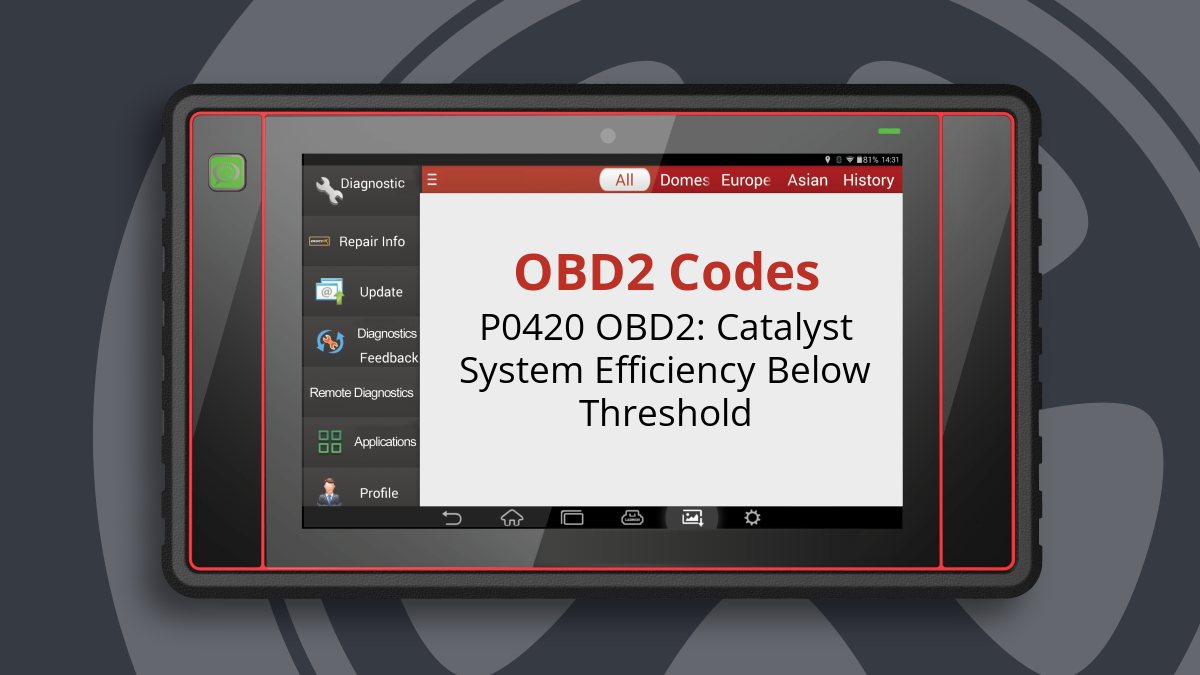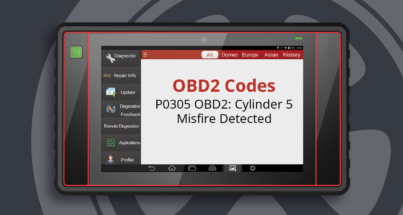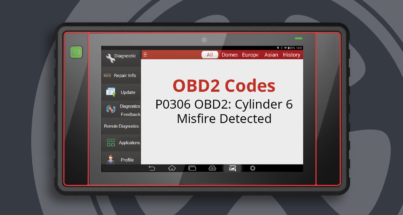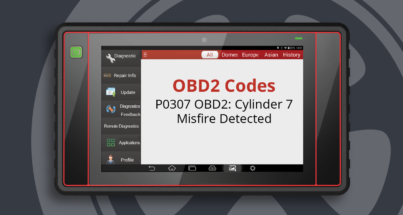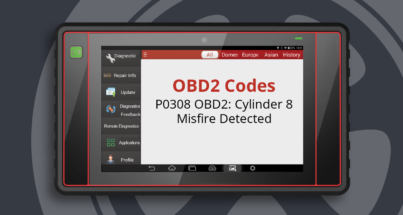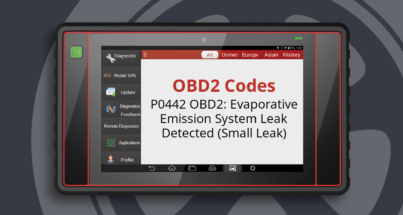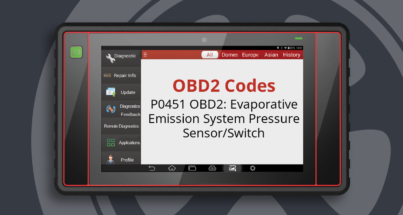The P0420 OBD-II code indicates a Catalyst System Efficiency Below Threshold. This code is triggered when the engine control module (PCM) detects that the catalytic converter is not performing efficiently. The PCM compares the readings from the front and rear oxygen sensors and determines that the catalytic converter is not effectively converting harmful emissions, leading to the P0420 code.
What Does the P0420 Code Mean?
OBD-II Code P0420 is defined as a Catalyst System Efficiency Below Threshold. Essentially, this means that the catalytic converter is not functioning as it should, which can lead to increased emissions and potential damage to the vehicle.
What Causes the P0420 Code?
Several factors can trigger the P0420 code, including:
- Inefficient Catalytic Converter: The most common cause of this code, often due to wear and tear or contamination.
- Defective Front or Rear Oxygen Sensors: These sensors monitor the efficiency of the catalytic converter. If they fail, they may report incorrect readings.
- Engine Misfires: Any misfiring can lead to unburned fuel entering the catalytic converter, causing it to fail.
- Internal Oil or Coolant Leaks: These can damage the catalytic converter over time.
What Are the Symptoms of the P0420 Code?
Symptoms associated with the P0420 code may include:
- The Check Engine Light illuminating.
- In most cases, there are no noticeable adverse conditions by the driver.
- In some situations, there may be performance issues like a lack of power due to a damaged or restricted catalytic converter.
How Serious Is the P0420 Code?
The P0420 code is considered urgent. It indicates that immediate action is necessary, as neglecting this issue can lead to severe damage to the vehicle and potential hazards for the driver and passengers. It’s crucial to address this code promptly to maintain vehicle performance and compliance with emissions standards.
How to Diagnose the P0420 Code
To diagnose the P0420 code, follow these steps:
- Retrieve the code and note any freeze frame data for future reference.
- Check for any misfires, ignition, or fuel system issues, as these must be repaired before addressing the catalytic converter.
- Test drive the vehicle under the conditions noted in the freeze frame to see if the rear oxygen sensor mirrors the front sensor or fails to reach the necessary threshold.
- If any doubt exists about the condition of the oxygen sensors, check the Mode 6 data to evaluate their performance.
- If the catalytic converter is deemed faulty, ensure to check for any necessary software updates for the powertrain computer.
Common Repairs for the P0420 Code
Repairs for the P0420 code can vary based on the underlying issue, but common solutions include:
- Replacing a defective catalytic converter.
- Replacing faulty front or rear oxygen sensors.
- Repairing engine misfires or other related issues.
- Addressing oil or coolant leaks that may be affecting the catalytic converter.
How Much Does It Cost to Fix the P0420 Code?
The cost to fix the P0420 code can vary widely based on the necessary repairs. On average, replacing a catalytic converter can range from $1,000 to $2,500, including parts and labor. Replacing oxygen sensors may cost between $100 and $500 depending on the vehicle model and labor costs.
Can I Fix the P0420 Code Myself?
While some DIY enthusiasts may be able to replace oxygen sensors or perform basic diagnostics, fixing a P0420 code often requires specific knowledge and tools, especially when it comes to diagnosing catalytic converter issues. If you are not experienced in automotive repair, it is recommended to consult a professional to ensure accurate diagnosis and repair.


